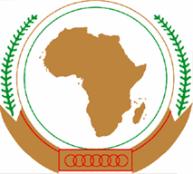The recent African Union summit originally intended to concentrate on accelerating Africa's industrial development. By the time they met from Jan. 31 through Feb. 2, however, the 52 African heads of state who attended the 10th Ordinary Session of the AU Assembly of Heads of State and Government in Addis Ababa, Ethiopia, abandoned consideration of this and other planned agenda items in order to address the conflicts in Chad, Kenya, Sudan, and Somalia, which dominated their discussions. Although the need to manage urgent problems can often stimulate institutional capacity building, in this case the crises prevented AU governments from grappling with more fundamental questions, such as the difference among members over whether the union should evolve into a United States of Africa or remain a largely intergovernmental body of sovereign nation states. In the case of Chad, the rebels' unexpected seizure of N'Djamena immediately raised the possibility of a forceful overthrow of Chadian President Idriss Déby. Adhering to the AU's policy of opposing undemocratic changes in government, the members strongly condemned the rebel attacks. The new AU Chairman, President of Tanzania Jakaya Kikwete, stated that "the AU will not recognize a government which results from a rebellion in Chad." The attendees also authorized Congolese President Sassou Nguesso and Libyan leader Moammar Gadhafi to find a solution to this conflict, though their mediation effort does not seem to have succeeded.
African Conflicts Paralyze 10th African Union Summit

